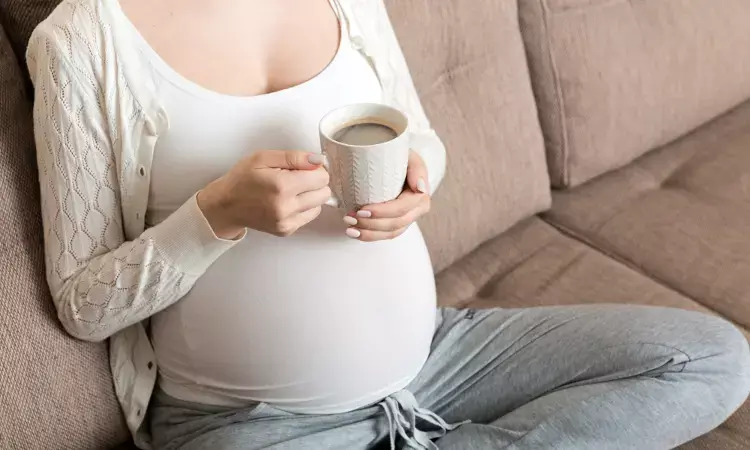- Home
- Medical news & Guidelines
- Anesthesiology
- Cardiology and CTVS
- Critical Care
- Dentistry
- Dermatology
- Diabetes and Endocrinology
- ENT
- Gastroenterology
- Medicine
- Nephrology
- Neurology
- Obstretics-Gynaecology
- Oncology
- Ophthalmology
- Orthopaedics
- Pediatrics-Neonatology
- Psychiatry
- Pulmonology
- Radiology
- Surgery
- Urology
- Laboratory Medicine
- Diet
- Nursing
- Paramedical
- Physiotherapy
- Health news
- Fact Check
- Bone Health Fact Check
- Brain Health Fact Check
- Cancer Related Fact Check
- Child Care Fact Check
- Dental and oral health fact check
- Diabetes and metabolic health fact check
- Diet and Nutrition Fact Check
- Eye and ENT Care Fact Check
- Fitness fact check
- Gut health fact check
- Heart health fact check
- Kidney health fact check
- Medical education fact check
- Men's health fact check
- Respiratory fact check
- Skin and hair care fact check
- Vaccine and Immunization fact check
- Women's health fact check
- AYUSH
- State News
- Andaman and Nicobar Islands
- Andhra Pradesh
- Arunachal Pradesh
- Assam
- Bihar
- Chandigarh
- Chattisgarh
- Dadra and Nagar Haveli
- Daman and Diu
- Delhi
- Goa
- Gujarat
- Haryana
- Himachal Pradesh
- Jammu & Kashmir
- Jharkhand
- Karnataka
- Kerala
- Ladakh
- Lakshadweep
- Madhya Pradesh
- Maharashtra
- Manipur
- Meghalaya
- Mizoram
- Nagaland
- Odisha
- Puducherry
- Punjab
- Rajasthan
- Sikkim
- Tamil Nadu
- Telangana
- Tripura
- Uttar Pradesh
- Uttrakhand
- West Bengal
- Medical Education
- Industry
Coffee consumption during pregnancy not linked to increased risk for adverse outcomes

Coffee consumption during pregnancy is not tied to increased risk of adverse events according to a study published in the International Journal of Epidemiology
Coffee consumption has been associated with several adverse pregnancy outcomes, although data from randomized–controlled trials are lacking. We investigate whether there is a causal relationship between coffee consumption and miscarriage, stillbirth, birthweight, gestational age and pre-term birth using Mendelian randomization (MR).
A two-sample MR study was performed using summary results data from a genome-wide association meta-analysis of coffee consumption (N = 91 462) from the Coffee and Caffeine Genetics Consortium. Outcomes included self-reported miscarriage (N = 49 996 cases and 174 109 controls from a large meta-analysis); the number of stillbirths [N = 60 453 from UK Biobank (UKBB)]; gestational age and pre-term birth (N = 43 568 from the 23andMe, Inc cohort) and birth weight (N = 297 356 reporting own birthweight and N = 210 248 reporting offspring's birthweight from UKBB and the Early Growth Genetics Consortium). Additionally, a one-sample genetic risk score (GRS) analysis of coffee consumption in UKBB women (N up to 194 196) and the Avon Longitudinal Study of Parents and Children (N up to 6845 mothers and 4510 children) and its relationship with offspring outcomes was performed.
The results of the study are:
- Both the two-sample MR and one-sample GRS analyses showed no change in risk of sporadic miscarriages, stillbirths, pre-term birth or effect on gestational age connected to coffee consumption.
- Although both analyses showed an association between increased coffee consumption and higher birth weight, the magnitude of the effect was inconsistent.
Thus, the results suggest that coffee consumption during pregnancy might not itself contribute to adverse outcomes such as stillbirth, sporadic miscarriages and pre-term birth or lower gestational age or birth weight of the offspring.
Reference:
Caroline Brito Nunes, Peiyuan Huang, Geng Wang, Mischa Lundberg, Shannon D'Urso, Robyn E Wootton, Maria Carolina Borges, Deborah A Lawlor, Nicole M Warrington, David M Evans, Liang-Dar Hwang, Gunn-Helen Moen, Mendelian randomization study of maternal coffee consumption and its influence on birth weight, stillbirth, miscarriage, gestational age and pre-term birth, International Journal of Epidemiology, 2022;increasedincreased dyac121, https://doi.org/10.1093/ije/dyac121
Dr. Shravani Dali has completed her BDS from Pravara institute of medical sciences, loni. Following which she extensively worked in the healthcare sector for 2+ years. She has been actively involved in writing blogs in field of health and wellness. Currently she is pursuing her Masters of public health-health administration from Tata institute of social sciences. She can be contacted at editorial@medicaldialogues.in.
Dr Kamal Kant Kohli-MBBS, DTCD- a chest specialist with more than 30 years of practice and a flair for writing clinical articles, Dr Kamal Kant Kohli joined Medical Dialogues as a Chief Editor of Medical News. Besides writing articles, as an editor, he proofreads and verifies all the medical content published on Medical Dialogues including those coming from journals, studies,medical conferences,guidelines etc. Email: drkohli@medicaldialogues.in. Contact no. 011-43720751


